20 Management Lessons (From GRAMMY Winning Artists’ Managers)
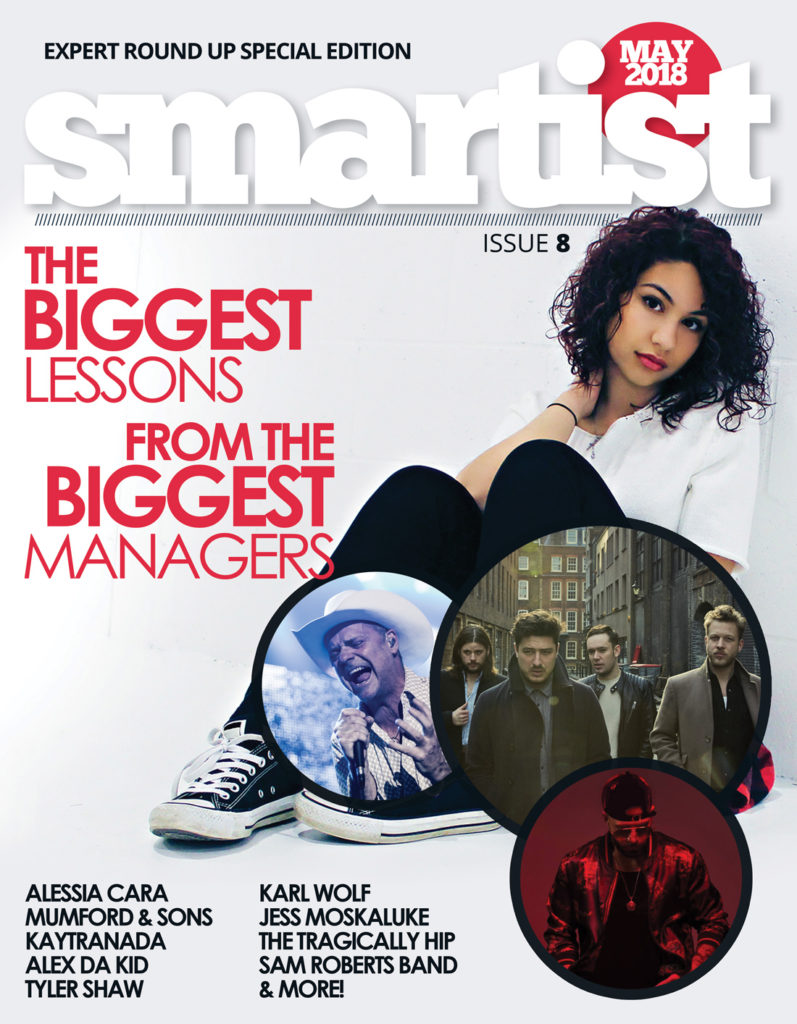
20 Management Lessons (From GRAMMY Winning Artists’ Managers)
In May of 2013, I started SmartBandManagement.com in my hometown of Pickering, Ontario, just before moving across the country. During the first year of the blog, I think I published a total of 10 articles with the help of a student writer that I had hired, and kept the whole thing pretty quiet. It wasn’t until the 1-year mark that I decided to take it a step further and get some colleagues involved, and published our “grand opening” expert round-up article (which is one of the top read articles on the blog to date).
Five years later, we’re celebrating having grown from a small blog to an online school and top music business resource for artist managers and self-managed artists around the globe.
To celebrate, we’ve been doing a bunch of fun stuff including hosting deals on our products; we created a fun infograph sharing the past 5 years of our successes; we’re giving away 5 free scholarships to our upcoming group mentorship program; we started the process of a re-brand from Smart Band Management to Smartist University; and of course we did this special 5-year content piece – similar to our first-year expert round up interview.
I thought you might want to hear some advice from some of the top artist managers in the biz again, so this time I decided to find out the biggest lessons from 16 of the most influential artist managers and collect them for you here. These managers represent artists with millions of fans, Platinum albums, world tours, multi-millions of streams, top radio hits, JUNO Awards, CMA and CCMA Awards, GRAMMY Awards, or other incredible achievements. These artists include Mumford & Sons, Alessia Cara, Tyler Shaw, Karl Wolf, Kaytranada, The Tragically Hip, Johnny Reid, Jess Moskaluke, Mother Mother, Sam Roberts Band, Blue Rodeo, Dean Brody, City and Colour, and producers such as Alex Da Kid who has worked with Imagine Dragons, Nikki Minaj, Rihanna, and many others.
When I asked their managers:
What is the biggest lesson you’ve learned in your career as an artist manager?
These were there answers. Note: This video summarizes their responses into the top 20 lessons. The article below features their full/quoted responses.
1. Danny Reiner, 21 Entertainment Group / Chris Smith Management (Alessia Cara, Tyler Shaw)
Patience.
The art of patience is key in the field of artist management. This applies to every aspect of the business from career building to rolling out marketing plans. With proper planning and strategy, patience can be a real asset to a manager. It allows one to think through the immediate and long-term objectives and obstacles. The development stage of an artists career requires great patience to strengthen the artist as a person, as a performer, and ultimately as an artist. If an artist and their manager can establish and maintain a communicative and respectful business relationship, combined with patience, great things can happen.
2. Pascal Malkoun, Lone Wolf Entertainment (Karl Wolf, Brandon Scott formerly of Cold Creek County)
One of the biggest lessons I’ve learned so far throughout the years as an artist manager is that talent shouldn’t be the only factor to consider when an opportunity arises to work with an artist. As a matter of fact, talent is one of the many factors that play a crucial role in the success of an artist. Only when all factors below line up, does the project have a possible chance at success.
It’s extremely important that the artist in question is driven and hungry for the desire to be successful. Determination should never be doubted. Additionally, they must be willing and able to invest in oneself. Unless the artist is backed by a financial investor (could be yourself), they must be able to front the bill on costly activities such as photoshoots, studio time, production for a few demos, etc. Without this ability, it would be hard to get anything moving at all. Also, the artist’s understanding of how the music business works is an absolute must, otherwise you might find yourself with an artist that does not have a real understanding of expectations, which might lead to frustrations from both parties.
An artist with a good attitude and humility is a giant plus. A positive attitude will not only help you communicate with the artist better but will attract other music industry peers to want to work with him or her, thus enlarging ones contacts and resources. The artist must be humble and always remember who he or she is, and not develop a feeling of entitlement as soon as he or she achieves a little success, otherwise it’s going to be a long and bumpy road ahead. The most important factor however is to make sure that the manager and the artist have the same amount of belief and trust in one another. You and the artist are now a team, so being on the same page is the foundation to a strong and healthy professional relationship.
My suggestion is that if you are interested in managing an artist, which you see potential in, spend some time talking, hang out, and ask the right questions to one another before committing. This will help you find out about the factors mentioned above!
3. Nick Jarjour, Maverick Management (Starrah, Alex Da Kid, Cirkut)
Always look out for your artists best interests, that’s the most important thing. As a manager, the #1 responsibility of a manager is to look out for their clients best interest. Never put anything else before that. I think it’s so sad and sickening today to see the state of mental health for example, in the music industry, and how every body is putting deals in front of their clients or putting other things in front of actually looking out for these human beings. As a manager I would suggest, if you’re not managing a company and you’re managing a person, you’re not in the record business, you’re actually in the person business and you don’t want to be like a human trafficker. Even if your intentions are good, the moment that you’re not looking out for your clients’ best interest, you’re failing as a manager. There’s so many lessons that I could share with you but that’s, at more core, the #1 thing.
Managing people’s expectations would be the second thing I would tell you. The best thing you can do as a manager is learn how to manage expectations. That’s the art of management. Because once you learn how to manage expectations, you’ll probably retain your clients for longer, you’ll probably have more success, and you’ll probably be a great manager.
4. William Robillard Cole, WRC Management (Kaytranada, Sango)
I always tell people that you’re going to get shit on when things go wrong, but you’re going to be praised when things go right. You have to learn to have this non-emotional wall, of like, taking a deep breath before you deal with things, or even process things. Because you’re the hub, you’re responsible for everything. It’s all about adapting.
I always to go to my clients and ask them what they want to do, and then figure out a way to make it profitable. Because an artist has a vision, and it’s usually not monetary, and the managers job is to stick to that but make it as big as possible. You can’t always be fielding opportunities to your artists because it distracts them from what they’re doing. Obviously there’s going to be good opportunities to present them with, but I like to not show them what’s available, but ask them what they want to do.
5. Bernie Breen, Bernie Breen Management (The Tragically Hip, Matthew Good)
Always tell your artists the truth, tell them what they need to hear, not what they want to hear…
6. Tracey Wilder, Halo Entertainment Group (Johnny Reid, JJ Shiplett)
Don’t be concerned with what everyone else is doing. Following trends can be helpful and fun in some areas but will not sustain longevity. You need to make decisions that work for your artists individually and that may not always be what works for everyone else.
7. Mike Denney, MDM Recordings (Jess Moskaluke, Chad Brownlee)
The biggest thing I have learned in my years of artist management and label is that nothing is ever fast enough. It takes what feels like forever to get off the ground and even once you do get a career off the ground and things start happening, it never feels likes it’s happening fast enough. Artist Management is thankless. When things aren’t happening it’s your fault, when things are happening the artist gets most of the credit. Combine that with the stress and it can be a very frustrating experience sometimes. That being said, there is nothing better than finding a great artist and taking them from ground zero to star, it never gets old.
8. Darren Gilmore, Watch Dog Management (Mother Mother, Former Manager of Hedley)
The biggest lesson I have learned so far is that no manager has a silver bullet, or magic wand. Everyone wins and loses a few rounds out there. Our entire job is to do the right thing for the artist, even when the artist doesn’t quite see it yet. Great artists are genius, but can also be complicated, so it’s always going to be a challenging and bumpy road ahead. The journey is what it’s all about though, as none of us have a crystal ball and can’t really know what the final destination is. Longevity isn’t a given in this business, so do your best to enjoy it while you’re in it. When it is a long ride, you’ve done something right and had some luck, so be grateful and give back
9. Jennifer Sookdeo, SOOKS Productions (Sam Roberts Band)
A couple of my biggest lessons:
There is a difference between loving an artist and feeling passionate about an artist. When it’s passion driven, everything feels and operates more like a partnership.
Ongoing communication and dedication from both sides keeps the needle moving forward and allows for managed risk taking.
The genuine support of other managers has been a very unexpected surprise and so valuable in navigating this quickly evolving business.
10. Jerry Lembo, Lembo Entertainment (Josh Taerk)
It’s like taking a wedding vow. I, (insert artist managers name), take you, (insert artists name), to be my lawfully contracted (client), to develop and advance your career objectives, from this day forward, for better, for worse, for richer, for poorer, in sickness and in health, until one of us says “no mas”.
11. Jill Snell, Road Angel Entertainment (Paul Brandt, Tebey)
Maybe… protect yourself. It’s really easy to begin a relationship and just start rolling and not think about what might happen if things go wrong, or go really right. When I say protect yourself I mean look to the future as soon as you start working with someone. Put a contract in place or have an agreement so that you know where you stand. If things go really wrong you can get out, or if things go really right you’re protected and there’s no question as to what’s going to happen. You do not want to try to chunk things together after the fact. Because money is the one thing that can pull people apart. So it’s best to have it iron clad and put to bed in the beginning.
It’s the same thing as writers walking into a room. If you haven’t established before you walk in that room what the split of the song’s going to be then all hell can break loose down the road if that wasn’t negotiated up front.
Make sure you understand what your financial relationship is going to be with your client.
12. Susan de Cartier, Starfish Entertainment (Blue Rodeo, Jim Cuddy)
I think for artist management I would say that your client should have a different accountant then you. Don’t do your clients’ books. I have been left with clients owing me money. That’s my fault too – I should have been on it and shouldn’t have let that happen. What happens when you work with your own clients’ money, if they want to find mistakes, they will. Just like Revenue Canada. Not because managers are being unethical but because people are humans, and accusations of mishandling of money can start getting thrown around. And you don’t want that attached to your reputation. It can distract from bigger issues that may be happening. Once somebody has that perception of you, it sticks… you know this is a business of perception.
13. Larry Wanagas, Formerly Bumstead Productions (Former Manager of k.d. Lang, The Trews)
Well, here is what comes to mind. You’ve got to love the artist. If you don’t see a band fall in love with that band and find yourself prepared to go to the walls and bang your head against it until they are successful, then you shouldn’t be working with them. You’ve got to love the bands.
I think once in 30 years, I might have signed an artist when I didn’t really love them but I thought they were going to make a killing. Good looking, professional you know this that and the other thing but I didn’t really love the material or the direction. Guess what? It didn’t work out.
I mean if you can’t pick up a phone call at 3:30 in the morning and tell the band how to get the van out of the ditch, you shouldn’t be doing this. I mean I’m not saying the only thing you do is to solve problems. But it takes a love of the bands in order to be creative, in order to put in the time and motivation and the commitment. This isn’t a 9 to 5 job. This is a 24/7 job. There’s time in between to have a life and do things with your family and do the things you do, but you’ve got to love the band.
There are probably some very qualified managers out there, that could take a band they don’t really care for and make them participate in their success, just because of the contacts they have and the abilities they have as managers, but I couldn’t do it. I personally couldn’t do it. What I’ve learned… love the bands, then you can do the work.
14. Ron Kitchener, RGK Entertainment Group/Open Road Recordings (Dean Brody, Tim Hicks)
Think about the Big Picture and stay focused. What may seem “dramatic” in the moment on Monday usually becomes long forgotten a week later.
15. Joel Carriere, Bedlam Music Management/Dine Alone Records (City and Colour, The Sheepdogs)
I learn new ones often and they can change as I grow as a person. Over the last few years I have learned to take time for myself. I used to think everything would fall apart if I weren’t around. I used to think that if I weren’t always out that I would disappear – but you can lose perspective on why we are here if you live like that.
We are here to push forward, professionally and personally. I wasn’t pushing myself forward personally and that wasn’t making for the best me. I fell in love with a girl and had my first child, which is my greatest accomplishment ever. I wouldn’t have done this if I didn’t change my way of thinking. I now go to the gym four days a week, its only four hours a week for me to take care of myself and keep me the best me.
I have also learned not to project my expectations onto others. I have high expectations from a lot of people and it leaves me disappointed more often than not. I have learned to really figure out who the other person is, accept who they are and understand what they may expect from me. It makes for a better existence.
16. Adam Tudhope, Everybody’s Management (Mumford & Sons, Keane)
Confidently asking someone you encounter in your business dealings to clarify or explain what they mean when you either don’t know about or don’t understand what they’re saying will always serve you much better than trying to front it out.
Major thanks to all these managers for paving the way for the rest of us.
Comment below with your biggest lesson or whichever lessons above resonated with you the most. Thanks for reading!
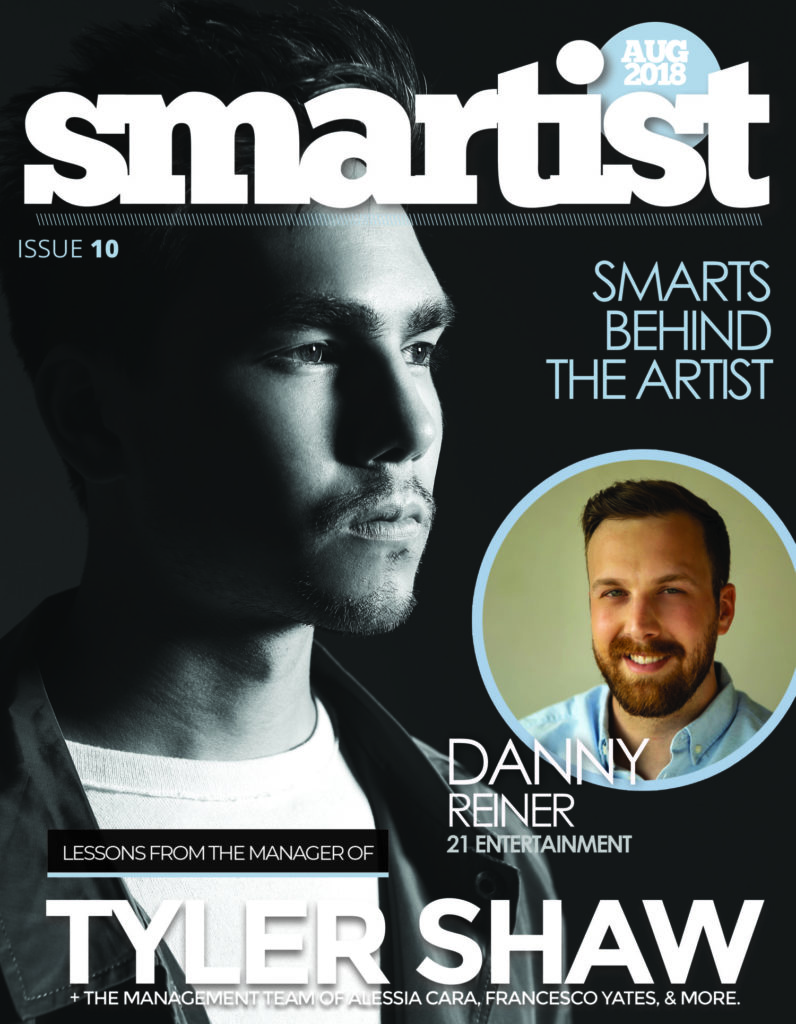

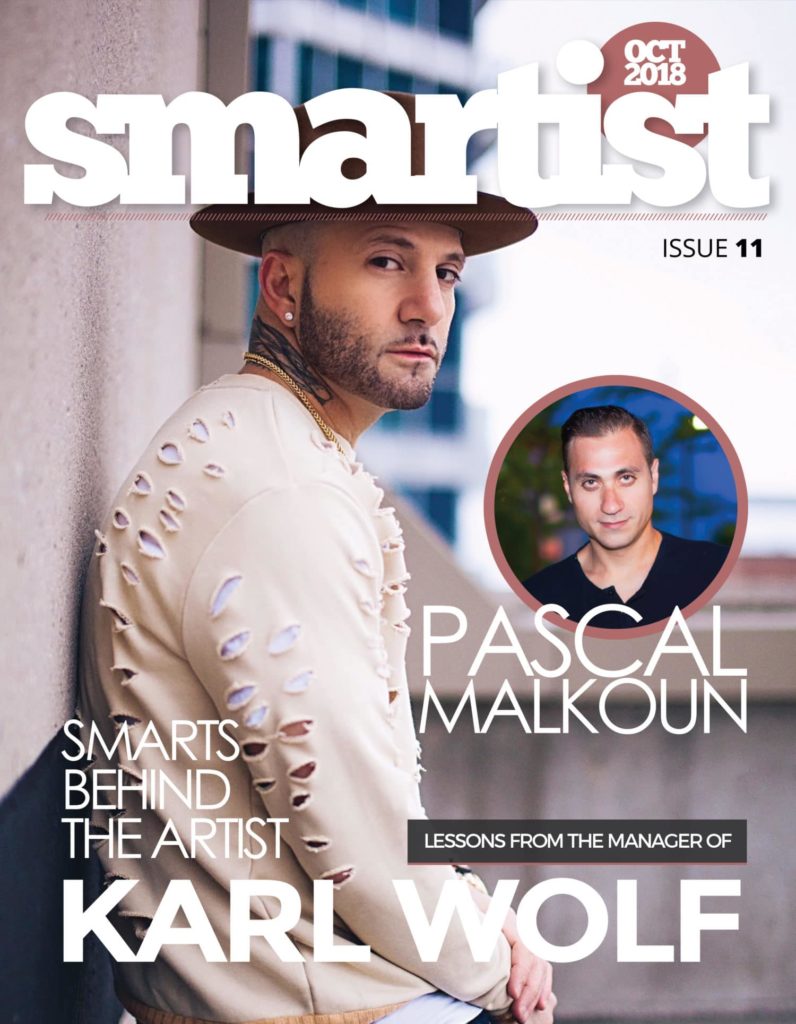
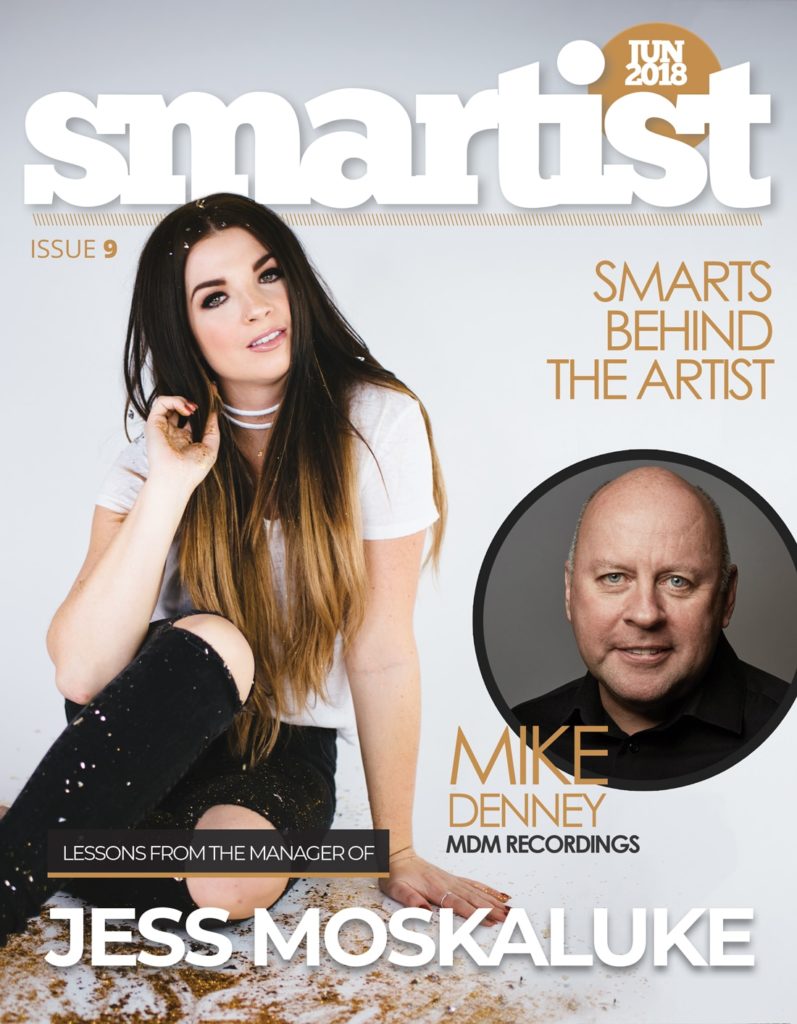
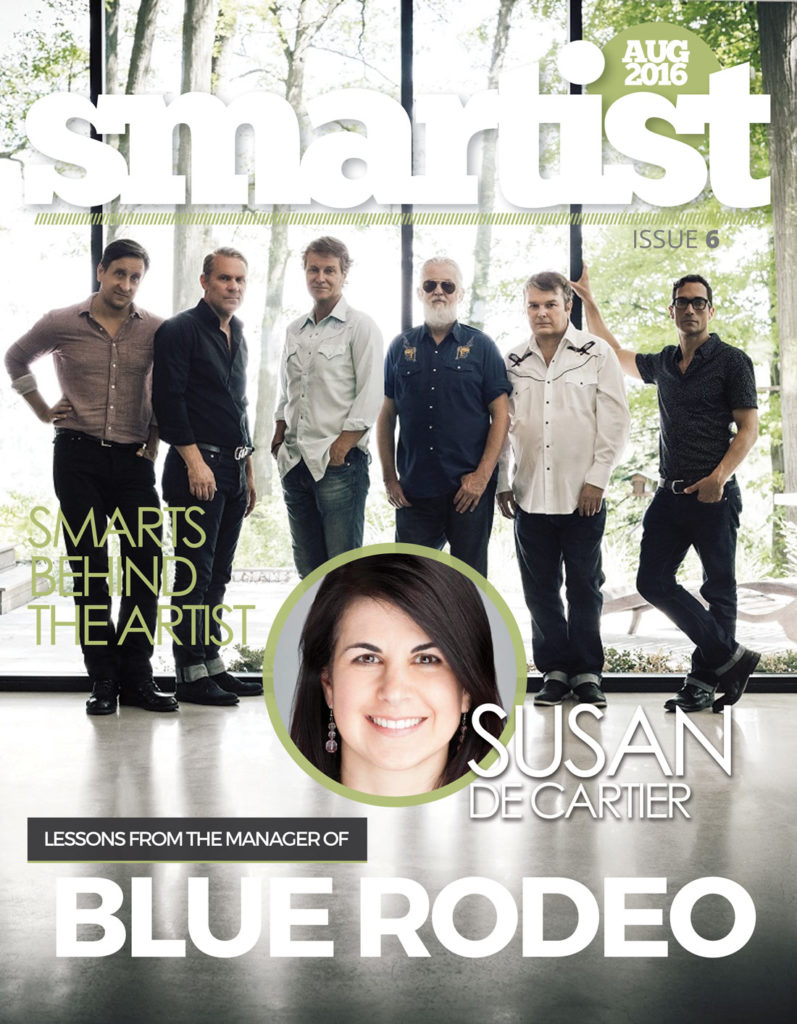
this content is really helpful. i was wondering if you had any tips on managing artists that are in different countries or at a significant distance. i’m somewhat new to this, and i’m not sure if it’s the same process, or if it’s even a good idea for someone just starting out. thanks
Hi Lee thanks for the note! It’s always better to start off working with someone where you can get to know each other in person, BUT that doesn’t mean it MUST be done that way. Pretty much every thing we do these days is digitally so it’s pretty easy to Skype, FaceTime, and transfer documents over Google Drive or Dropbox. I’ve worked with lots of artists from a far distance. Whether they’re far from you or not, you’ll want to set up weekly or even daily “meetings” (Skype or FaceTime or phone call) – depending on how much artist activity there is at the time – get to know them better in the beginning. Over time once you get to know them, their preferences, and how to do business on their behalf, meetings can be spread much further out. Of course this is all going to be unique to your situation – so do whatever feels best.